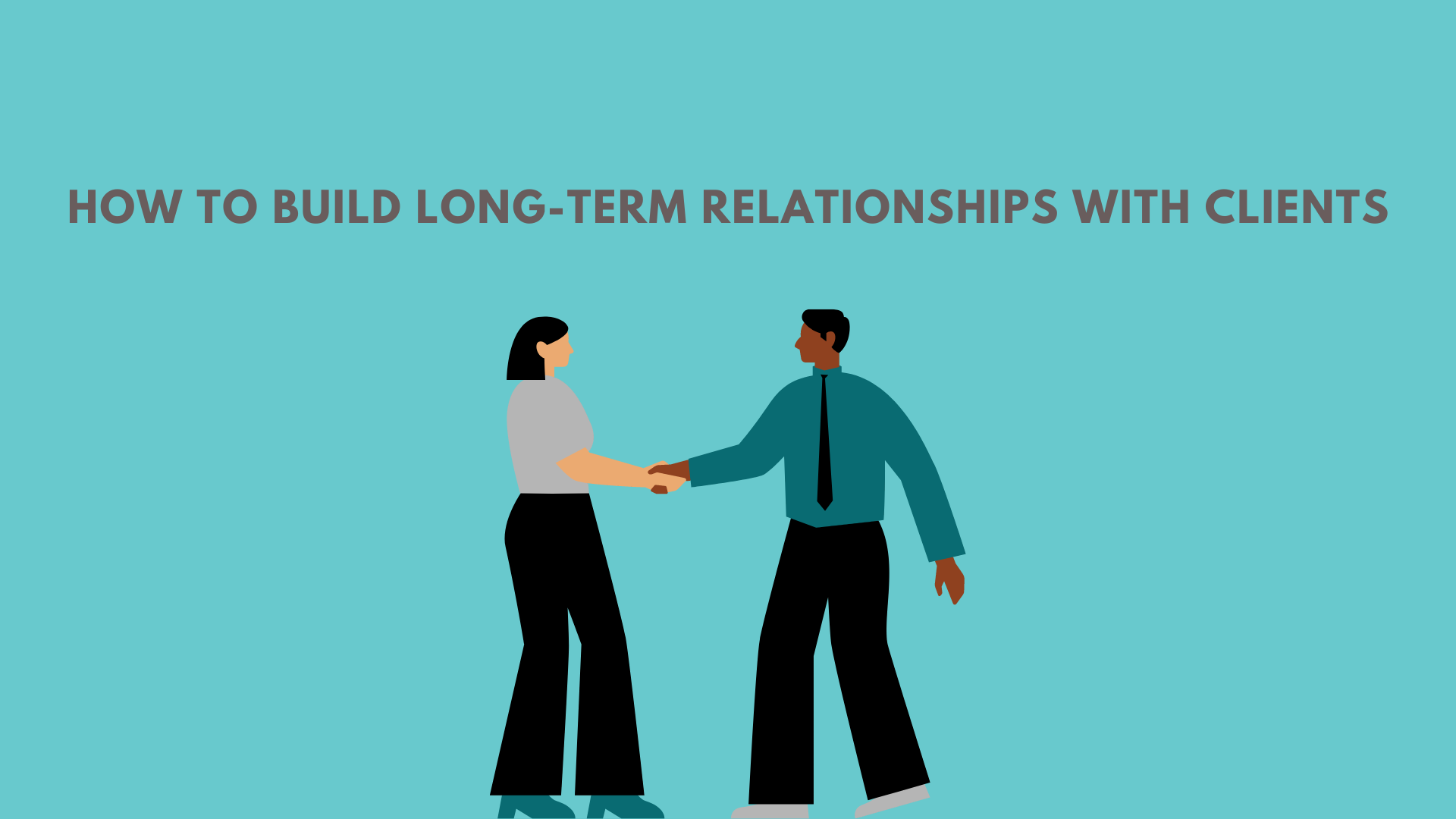In the world of business, one of the most valuable assets you can cultivate is a strong, long-term relationship with your clients. These relationships are the foundation of sustained success, leading to repeat business, referrals, and a positive reputation. Building long-term client relationships requires effort, consistency, and a genuine commitment to your clients’ success. Here’s how to foster these relationships for mutual growth and satisfaction.
- Understand Your Client’s Needs and Goals
The cornerstone of any strong relationship is understanding. In a business context, this means having a deep knowledge of your client’s needs, goals, and challenges.
Conduct In-Depth Research: Before entering into a relationship, take the time to learn about your client’s business, industry, and competition. The more you know, the better you can serve them.
Ask the Right Questions: Engage in meaningful conversations to uncover their long-term goals and the challenges they face. This will allow you to tailor your solutions to their specific needs.
- Communicate Regularly and Transparently
Effective communication is key to any successful relationship. Clients need to feel informed and heard at all times.
Set Clear Expectations: From the beginning, establish clear expectations around deliverables, timelines, and communication frequency. This helps avoid misunderstandings.
Provide Regular Updates: Keep your clients in the loop with consistent updates on the progress of your work. Even if there’s no significant development, touching base reassures them that you’re on top of things.
Be Transparent: If challenges arise, be upfront about them. Clients appreciate honesty and your willingness to find solutions together.
- Deliver Consistent Value
Long-term relationships are built on trust, and trust is built by consistently delivering value. Always aim to exceed your client’s expectations.
Focus on Quality: Ensure that the products or services you deliver are of the highest quality. This reinforces your reliability and commitment to their success.
Anticipate Needs: As you get to know your clients better, anticipate their needs and proactively offer solutions before they even realize they need them.
Provide Long-Term Solutions: Instead of just addressing immediate concerns, offer solutions that provide lasting value. This shows that you’re invested in their long-term success, not just short-term gains.
- Be Responsive and Available
In today’s fast-paced world, responsiveness is highly valued. Clients want to know that they can rely on you when they need assistance.
Respond Promptly: Aim to respond to emails, calls, or messages within a reasonable time frame. Even if you can’t provide an immediate solution, acknowledge their communication and give them a timeline for when they can expect a full response.
Be Accessible: Make sure your clients know the best ways to reach you and provide multiple contact options. Whether it’s through phone, email, or messaging apps, being accessible builds confidence in your availability and support.
- Build Personal Connections
While professionalism is important, building a personal connection can strengthen the bond with your clients.
Show Genuine Interest: Learn about your client’s personal interests and milestones. Remembering their birthday, celebrating their company’s anniversaries, or simply asking about their family can go a long way.
Be Empathetic: Understand that your clients are people with their own stresses and pressures. A little empathy can create a stronger personal connection, making the business relationship more resilient.
- Seek and Act on Feedback
Client feedback is invaluable for improving your services and maintaining a strong relationship.
Ask for Feedback Regularly: Periodically check in with your clients to ask how you’re doing and where you can improve. This shows that you’re committed to providing the best possible service.
Act on Feedback: When clients provide feedback, act on it promptly. Whether it’s improving a process, addressing a concern, or simply acknowledging their input, taking action builds trust.
- Celebrate Successes Together
Celebrate the milestones you achieve together. This reinforces the idea that you’re not just a vendor but a partner in their success.
Acknowledge Their Achievements: When your client reaches a significant goal, celebrate it with them. Send a congratulatory note, a gift, or simply express your appreciation for their hard work.
Share Your Successes: If your work has contributed to a client’s success, share that with them. It strengthens the partnership by highlighting the positive outcomes of your collaboration.
- Be Patient and Persistent
Building a long-term relationship takes time. It’s important to be patient and persistent in your efforts.
Give It Time: Don’t expect immediate results. Building trust and rapport takes time, so focus on consistent, quality interactions rather than quick wins.
Stay Committed: Even if the relationship faces challenges, remain committed to working through them. Persistence in the face of adversity often strengthens the bond.
Conclusion
Building long-term relationships with clients is about more than just making a sale; it’s about creating a partnership based on trust, mutual respect, and shared goals. By understanding your clients, communicating effectively, delivering consistent value, and building personal connections, you can create relationships that stand the test of time. These relationships not only lead to repeat business but also turn your clients into advocates who will refer others to you, contributing to your long-term success.
Invest in your client relationships today, and enjoy the benefits of loyal, long-term partnerships tomorrow.









